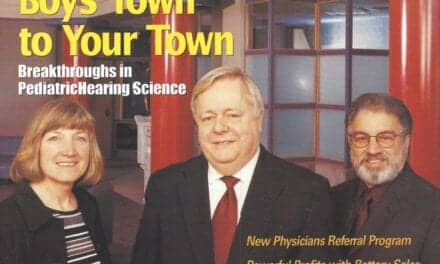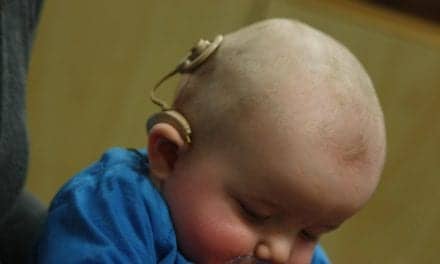May 18, 2007
New clinical and research data presented at the 11th International Conference on Cochlear Implants in Children (CI 2007) identified new groups of patients that can benefit from advances in hearing technology. Among the more than 350 presentations given at the international conference, however, were reports that dentified patients who do not benefit from cochlear implants.
Some of the presentation highlights include the following:
Children with Significant Residual Hearing Benefited from Implants
Harold Pillsbury, MD, presented findings on cochlear implantation in patients with significant residual hearing. "We showed that at a year and two years out, they were doing significantly better with a cochlear implant than they ever had done with a hearing aid," he said. This is useful new knowledge, Dr. Pillsbury said, because many practitioners believed that this group of patients would not benefit from cochlear implants.
Cochlear Implants Significantly Improved Socialization Skills in Children
Cochlear implants greatly improved the socialization and advancement of children who received them compared to deaf and hearing impaired children without cochlear implants, according to research presented by John K. Niparko, MD, of Johns Hopkins University.
Implants in Baby’s First Year Prove More Beneficial.
Researchers Ona Boe Wie and Sten Harris from the University of Oslo
presented findings on the effect of bilateral cochlear implantation on
spoken language skills in children aged five months to 18 months.
"The idea is that you need to put the implant in by the age 1. If
you wait until the child is 2, the results are much worse, and that
was surprising to me," Dr. Pillsbury said.
Children Diagnosed With Auditory Neuropathy Can Improve with Implants.
Jennifer Weinstock, an audiologist at the University of North Carolina
at Chapel Hill School of Medicine, demonstrated that a common baseline hearing test, ECAP (electrically evoked compound action potential) for children with auditory neuropathy can help identify which of these children will benefit from cochlear implants. That contradicts the commonly held belief that children with auditory neuropathy would do badly with a cochlear implant. Intracochlear testing identified children with a positive ECAP score that indicated they were good candidates for cochlear implants.
Cochlear Nerve Deficiency More Common Than Previously Thought.
A presentation by Dr. Buchman identified one group of patients that do not benefit from cochlear implants: those who do not have a cochlear nerve. His presentation featured the story of a young boy whose cochlear implant was not working. An MRI scan showed that the boy did not have a cochlear nerve, and thus a cochlear implant would never work for him. Dr. Buchman’s presentation showed further that cochlear nerve deficiency, which was thought to be an extremely rare condition, is much more common than previously believed. Currently there are 37 childrenwith this condition who are being followed at UNC Hospitals.
CI 2007 was April 11-14 in Charlotte, NC and hosted by the Department of Otolaryngology-Head and Neck Surgery of the University of North Carolina at Chapel Hill School of Medicine. The conference was divided into three clinical areas: cochlear implantation in very young children; patients with auditory neuropathy; and bilateral cochlear implantation. Course co-directors were Pillsbury, chair of the department; and Craig Buchman, M.D., professor and medical director of the Carolina Children’s Communicative Disorders Program at UNC.




